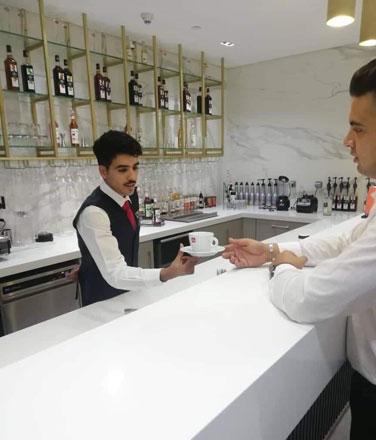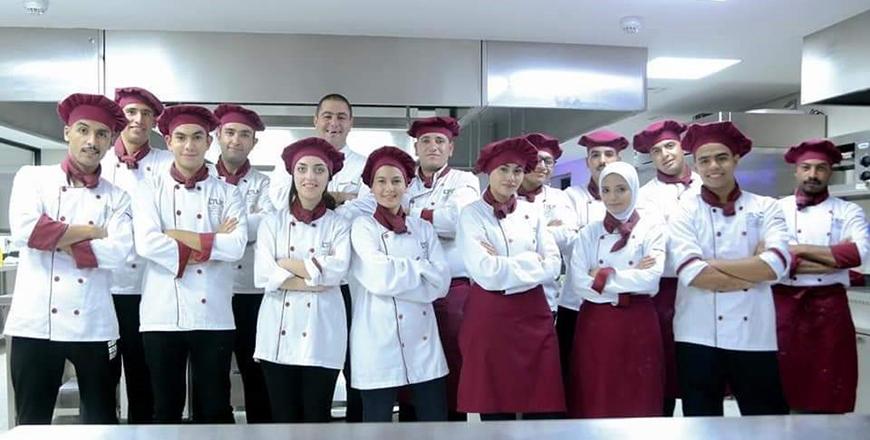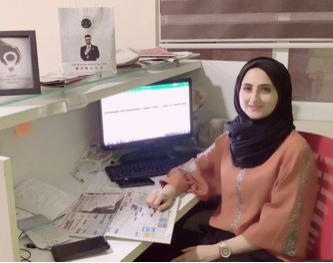You are here
Syrian student overcomes challenges through learning, training opportunities
By UNESCO - Aug 13,2020 - Last updated at Aug 13,2020

Ahmad Al Turk, a beneficiary of UNESCO’s TVET (technical and vocational education and training) programme (Photo courtesy of UNESCO)
AMMAN — Ahmad Al Turk, 19, has a lot to teach us about persistence. Ahmad and his family left Syria in 2012, arriving in Jordan with little more than the clothes on their backs. They moved in with family in the northern city of Mafraq and prepared to start fresh.
Wanting to help his family to make ends meet, 11-year-old Ahmad got a job at a clothing store, folding clothes and cleaning. For two years, he worked full time, trying to help his family get back on their feet.
Finally, Ahmad’s father got a job as a building manager in Amman and secured an apartment for his family. Ahmad’s parents enrolled him in school again but since Ahmad had missed two years, he had to begin in 5th grade rather than 7th.
For a few years, Ahmad played catch up, leaving school to return to the world of work after finishing the 8th grade. First, he rented a cart from a vendor and sold steamed corn and then found a job distributing water door-to-door.
“I bounced from one job to another for a while. My family and people from my community kept reminding me that I hadn’t completed my education and I felt really badly about this but didn’t feel like I had a choice as I needed to earn money and help out,” said Ahmad.
Then one day, the mother of one of Ahmad’s friends told him about scholarship opportunities she had seen advertised.
“The Technical and Vocational Education and Training (TVET) scholarships were appealing to me as they didn’t require applicants to have succeeded at Tawjihi. I had nothing to lose, so I applied for the Hospitality programme.”
The scholarships are offered as part of the UNESCO “Provision of TVET for vulnerable Jordanian and Syrian Refugee Youth” project, implemented with generous funding and strong partnership from the Government of the Republic of Korea, in cooperation with Luminus Technical University College (formerly Al Quds College).
Through the project, UNESCO supports youth to receive quality training programmes as a way of finding employment. The project is aligned with the 2030 Agenda for Sustainable Development and in particular, the Sustainable Development Goal 4, which focuses on ensuring inclusive and quality education for all and promoting lifelong learning.
“When I learned that I had been accepted into the programme, I was overcome with happiness. It was that moment that I realised that I had a chance to prove myself to all those who had criticised me for leaving school. I knew things were going to change for me,” shared Ahmad.
A week later, Ahmad began his studies. “I gained so much knowledge, skills and confidence during the programme. Going in, I felt I was completely out of my league but the programme was so packed with value. For me, one challenge was learning English, but I improved upon my skills as time went on. In the hospitality field, you need to deal with tourists from all around the world so it’s important to have a second language. I really enjoyed the HACCP certification course and learning about safe food handling.”
HACCP is an international standard defining the requirements for effective control of food safety and handling processes. Luminus instructors are licensed to issue the certificates to students who receive a satisfactory grade on the HACCP exam.
Lee Jae-wan, Ambassador of the Republic of Korea to Jordan, is pleased by the powerful impact of this TVET project.
“Korea believes that young people like Ahmad serve as a strong example to others, and demonstrate the power of perseverance. Youth have an opportunity to thrive and develop new skills through TVET training. We are delighted to be continuing to provide this valuable support through this UNESCO project,” he said.
In early 2019, Ahmad finished the on-the-job training portion of his programme and began knocking on the doors of businesses looking for work in his new field. After three days, he found a job as a waiter in a restaurant in Amman, where he has worked for the past year.
Reflecting on what it means to start over many times, Ahmad has a message for those searching for direction: “If you have lost hope in life, you must find it again. This programme brought hope back into my life and gave me an objective. Now my family is proud of me. When I think of the future, I feel that everything is going to be OK.”
(UNESCO contributed this article to The Jordan Times)
Related Articles
AMMAN — Each evening at 6pm, sirens echo throughout Jordan announcing the curfew, which, during the month of Ramadan, lasts until 8am each m
AMMAN — Rand Alyaseem, 21, is a fine example of what youth can achieve by choosing to partake in the technical vocational education and trai
AMMAN — As the ongoing COVID-19 pandemic continues to wreak havoc on the education sector, many disadvantaged children and youth struggle to














